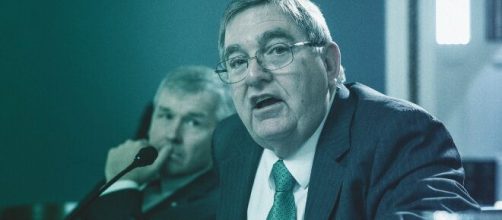One of the most difficult aspects of COVID-19 has been its spread by asymptomatic carriers. It's one of the biggest reasons for calls of increased testing. Especially if someone knows they've been exposed to the novel coronavirus.
Recent changes in guidelines from the Trump administration's CDC puzzled many. The changes seem to go against accepted wisdom regarding COVID-19. One of those taking issue with the new guidelines is Texas Republican Michael C. Burgess, notes Newsweek and MSN.
Calls COVID-19 testing 'paramount'
New CDC guidelines say people don't necessarily need to be tested after being exposed to COVID-19.
With certain exceptions, that is. Including pre-existing conditions, local policies, and if you're showing symptoms. They don't seem to address that supposedly 'non-vulnerable' individuals could unknowingly spread the virus to others. Including ones who could become seriously ill, even if the potentially asymptomatic spreader does not.
The move is in stark contrast to the normal calls for increased testing and contact tracing. Those expressing their disapproval include U.S. Representative Michael C. Burgess. Burgess says testing is the 'bulwark' for combatting COVID-19 until a vaccine is developed and widespread.
He also seems to indicate that there might be some confusion between the COVID-19 test and influenza testing.
Burgess said widespread testing for influenza isn't as necessary as it is for COVID-19. In large part because of the differences in incubation periods.
Burgess is a former long-time medical doctor
A native of Rochester, Minnesota, Burgess is a former OB/GYN. He received his medical doctorate from The University of Texas Health Science Center at Houston. Burgess also holds a master's degree in Medical Management via the University of Texas at Dallas. Previously, he had graduated from what was then North Texas State University—now known as the University of North Texas.
Burgess represents the 26th Congressional District of Texas, based in the Dallas region. Before him, the seat was held by Dick Armey, another Republican.
At the time of his retirement, Armey was the House majority leader. He had also chaired the House Republican Conference.
In the Republican primary before Armey's pending exit, his son, Scott, decided to run. Burgess, a political newcomer, was able to capitalize on people's concerns about nepotism. The younger Armey, a Denton County judge, also faced other problems. Including accusations of using his position to help out personal friends in an official capacity.
Michael C. Burgess would go on to win the Republican nomination for the House seat. He then easily won in the general election as he did in the next general election when his primary opponent was actor Lico Reyes. Since then, Burgess has won re-election another seven times.


